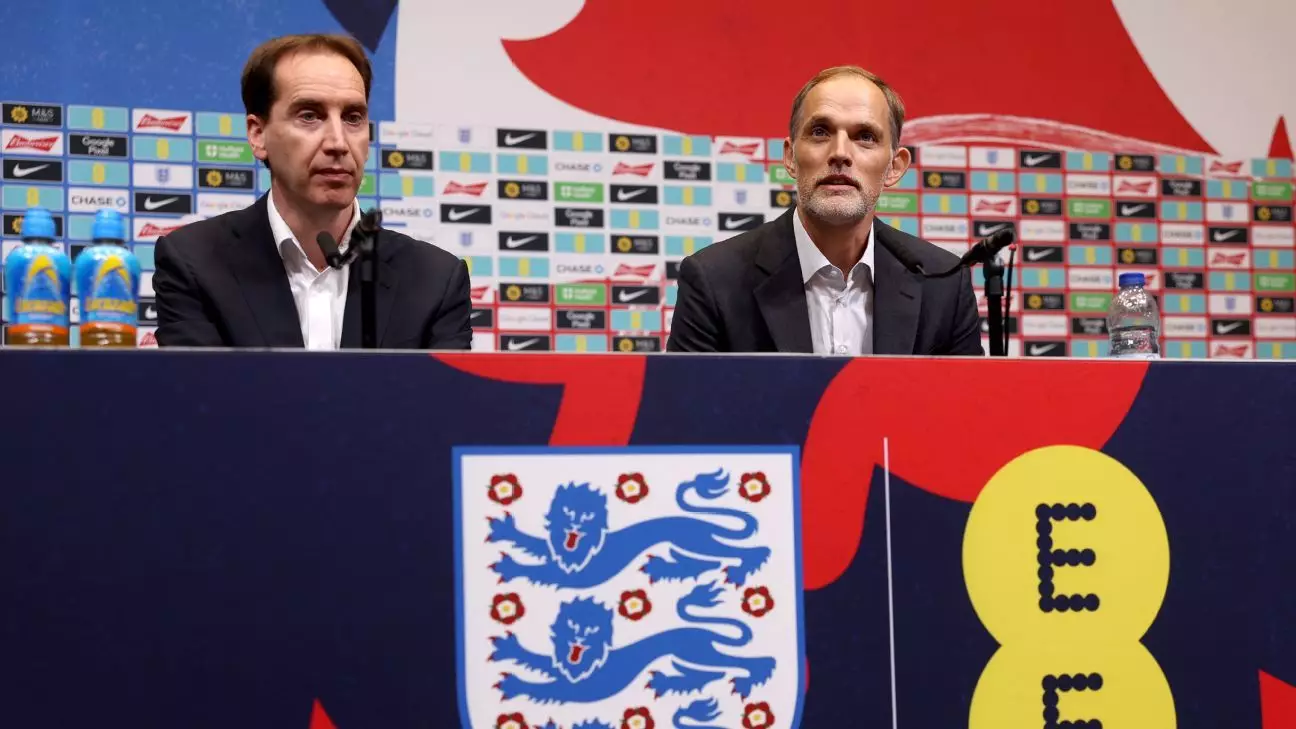As Thomas Tuchel takes the helm of England’s national football team, the anticipation surrounding his coaching strategy and staffing choices is palpable. Officially stepping into the role on January 1, the German manager is already making waves by reaching back into his connections at Chelsea to form a robust backroom team. The recent confirmation that Anthony Barry, formerly part of the Portuguese national setup, will join Tuchel as an assistant solidifies the notion that he values familiarity and established rapport within his coaching circle.
In a press event following his appointment, Tuchel emphasized the importance of maintaining a lean backroom staff, stating his intention to appreciate and utilize the existing talent within the Football Association. This philosophy reflects a delicate balance between integrating trusted personnel and respecting the institution’s existing structures. By announcing future additions will focus on quality over quantity, Tuchel signals a careful approach that might bode well for England’s future performances on the international stage.
Possible New Additions from Chelsea
Reports suggest that Tuchel is keenly interested in recruiting key figures from Chelsea, specifically targeting head of performance analysis James Melbourne and goalkeeping coach Hilario. The move for Melbourne, in particular, aligns with Tuchel’s broader strategy to improve performance analytics, which have become increasingly pivotal in modern football. His previous collaboration with Melbourne at Chelsea makes this connection natural, allowing him to seamlessly integrate analytical insights into the team’s tactical framework.
Chelsea’s current manager, Enzo Maresca, appears to adopt a progressive mindset, openly stating that the club will not obstruct opportunities for their coaching staff to pursue new challenges. This attitude fosters an environment where staff can evolve and explore pathways that may resonate better with their career aspirations. Maresca’s comments are significant, as they suggest a cultural shift within the club that prioritizes individual growth alongside team success.
The potential of key personnel following Tuchel to the England national team raises broader questions about the evolving landscape of football coaching. As clubs and national teams continue to invest in analytics and specialized coaching roles, Tuchel’s approach underscores a growing trend of high-level cooperation between clubs and national federations. The synergy created through such moves could redefine expectations and strategies at both the club and international levels.
Moreover, Tuchel’s preference for a small, cohesive unit may lead to enhanced communication and quicker decision-making processes on the field. The tight-knit nature of his preferred backroom staff can foster an environment of innovation and adaptability, essential qualities for success in high-stakes international competitions.
As Tuchel sets out to shape the future of England’s football ambitions, the intersection of talent and thoughtful staffing elucidates his strategic vision. With carefully selected assistants and a commitment to existing FA resources, the groundwork is laid for a promising new chapter in English football. The football community eagerly awaits the tactical innovations Tuchel will implement as England looks to reclaim its place among global footballing giants.
